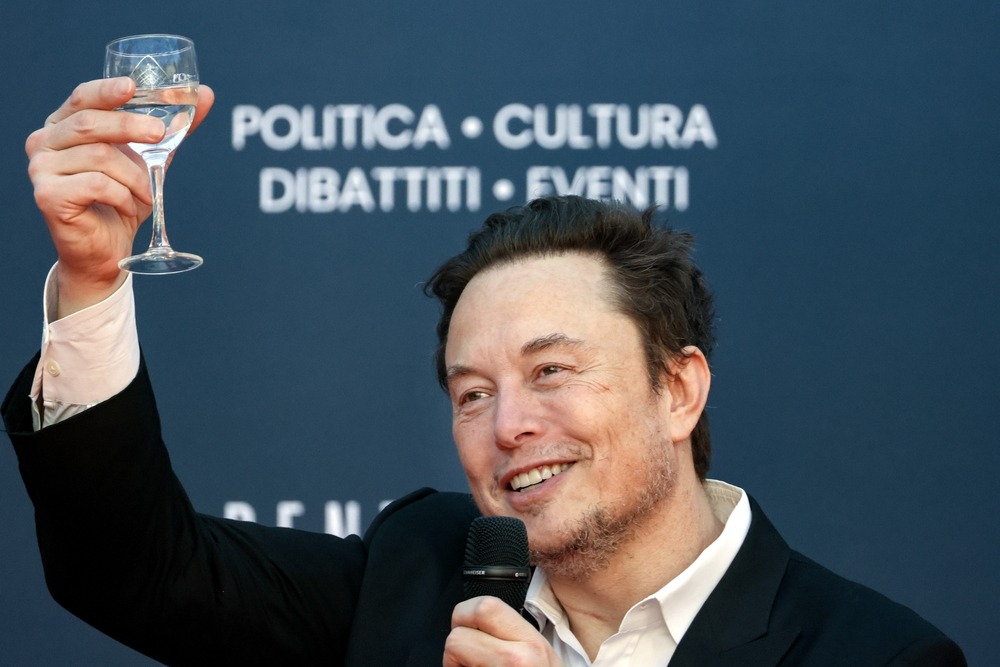Musk's Tesla Cybertruck: One Of The Biggest Auto Industry Flops Of All Time.
Tesla’s Cybertruck is quickly becoming a laughingstock in the auto industry—a colossal failure that now rivals some of history’s most notorious automotive misfires. The much-anticipated polygonal pickup, a personal project of billionaire Elon Musk, is not only a sales flop but also a punchline for comedians and critics alike. Once thought to be a game-changer, the Cybertruck has now missed its sales goals by a staggering 84%, and things show no signs of improving. This is a product that has wasted both resources and public faith, further cementing Musk’s place among the greatest flops in auto industry history, alongside the Ford Edsel, Pontiac Aztek, and the DMC-12.

When the Cybertruck was unveiled in 2019, Musk confidently predicted it would achieve sales numbers reaching 250,000 units annually. Fast forward to 2024, and Tesla has sold just under 40,000 of the trucks, far from the billionaire’s lofty expectations. And now, as sales continue to falter, there’s little hope for a turn-around in 2025. In fact, Tesla’s overall sales are plummeting, with first-quarter deliveries down 13%, a clear indication that the Cybertruck has failed to meet its promised demand. Despite Musk’s claims of "demand off the charts" and boasting that over 1 million reservations were made, the reality couldn’t be further from his words.

“The Cybertruck is right up there with Edsel,” says Eric Noble, president of CARLAB. “It’s a huge swing and a huge miss.”
And the decline is even worse than Ford's infamous Edsel, which only managed 63,000 sales in its first two years—well below its 200,000 target. Tesla’s Cybertruck, on the other hand, is barely making a dent, with 2024 sales indicating a serious lack of traction in the market. As of now, there's no sign of any substantial recovery in sight.
RELATED: Trump Hints That Musk Will Leave Doge, Could He Leave Tesla As Well?
What went wrong? Musk’s stubborn refusal to conduct any meaningful market research—famously stating, “I do zero market research whatsoever”—has left him with a product completely out of touch with consumer needs. While other companies focus on refining their products to meet the real-world demands of consumers, Musk’s Cybertruck is a reflection of his desire for a futuristic, sci-fi aesthetic that fails to satisfy the practical demands of truck buyers.

“They haven't sold a lot and it's unlikely in this case that overseas markets can save them,” notes industry researcher Glenn Mercer. “It’s really just for this market.”
The Cybertruck’s quirky design, born from Musk’s love of sci-fi and desire to avoid costly paint jobs, has also been a point of contention. The stainless steel exterior, while initially thought to be a unique selling point, has only proven problematic. Not only is it prone to showing handprints, but it’s also difficult to work with, leaving Tesla engineers scrambling to make it functional. And while avoiding a $200 million paint shop might have saved some money, it’s only added to the mounting costs elsewhere. According to Mercer, “They drooled over not spending $200 million on a paint shop, but probably spent that much trying to get the stainless steel to work.”
This lack of foresight and preparation has been the hallmark of Musk’s approach to the Cybertruck from the start. Even the unveiling was a disaster, with the so-called shatterproof “armor glass” famously breaking on stage when a steel ball was thrown at it. The incident led to Musk’s embarrassed remark: “Oh my f***ing God. We’ll fix it in post.”
To make matters worse, the price of the Cybertruck has ballooned well past Musk’s original promise. What was once a “base version” starting at $39,900 is now priced from $72,490, with some versions soaring over $100,000. The once-expected affordable electric truck is now out of reach for many, especially considering plunging resale values, which have left a glut of unsold inventory.

Moreover, the Cybertruck’s off-road and hauling capabilities, key features for any pickup truck, have been largely underwhelming. Scathing reviews and a growing collection of “Cybertruck fail” videos only reinforce the reality that the truck is incapable of living up to its promises. As Mercer points out, “If there's anything the Detroit Three know how to do, it's full-size pickup trucks with extremely loyal buyers.” Musk’s attempt to disrupt this industry segment has resulted in a spectacular failure.
So, where does this leave Musk? It seems the billionaire’s pursuit of power, profit, and self-indulgence has led him to squander the incredible potential he once had. He had the world at his feet—his tech vision could have changed industries forever—but instead, he has thrown it all away in the pursuit of greed, arrogance, and a desire for unchallenged dominance.
RELATED: Musk's Tesla Criticizes Trump Tariffs Amid Trade Tensions.
Musk may have achieved remarkable things, but he has clearly lost touch with what truly matters. The Cybertruck, like many of his other ventures, is a reflection of this disconnect. Musk, with all his wealth and influence, has made a series of missteps that will define his legacy in the years to come. Ultimately, he deserves everything that is happening to him—his own actions have set the stage for this inevitable downfall.










